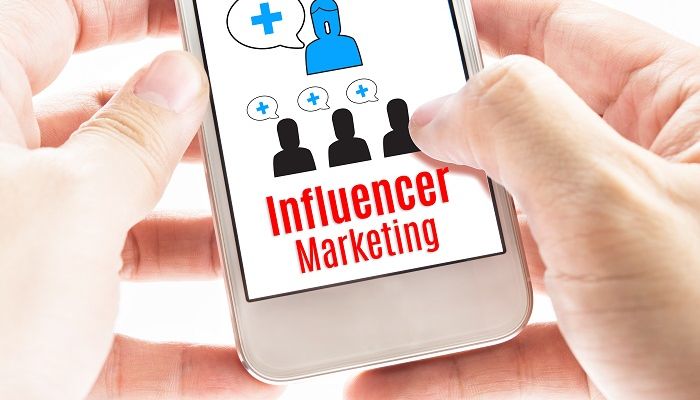The tricky business of influencer marketing
Last week it emerged that six in ten marketing PR professionals admitted to flouting the UK’s official code around influencer marketing. According to a recent study, 37 per cent of respondents said they fully adhered to the CAP code of conduct, while one in eight people surveyed said they did not know ‘‘at all’’ what the code is. Despite Advertising Standards clamping down on influencers and brands who do not make their partnerships clear to their audience, recent research shows that there is still a lot of uncertainty around the rules of engagement and that the majority of marketers expect influencers to participate in brand campaigns for free. Here’s what three bloggers and media practitioners had to say about this issue.
Michael White: Top ranking PR Blogger, digital account director, Lansons
“It’s difficult to tell whether brands are reluctant to disclose or are rather unaware of the rules that are in place. The wider PR industry needs to recognise itself as a professional practice where Continual Professional Development (CPD) is critical for career progression, meaning all the latest rules are adhered to. The fact that six in ten marketing and PR professionals are flouting the rules may signify how the boundaries have blurred between PR, advertising, and sponsorship. This makes CPD critical for the future success of the industry and managing our own reputation.
The PR industry has generally become a very fragmented environment in regards to qualifications and service areas. For instance, despite the Chartered Institute of Public Relations boasting over 10,000 members, only 2,000 completed CPD this year. Whilst progress is being made this potentially highlights a skills gap in the industry, certainly in respect to understanding the latest rules and guidelines. In terms of service areas there are some agencies who still only offer straightforward media relations and others who are expanding their capabilities into digital service areas, such as blogger engagement and search engine optimisation. This mixed picture and the need to quickly update services to remain competitive can often result in compliance processes taking the back seat and it’s not acceptable, threatening the overall reputation of the industry.
We run successful influencer marketing campaigns at Lansons but we do so in a way that realistically approximates return on investment Vs fee. Whilst we have great relationships with a variety of influencers online, we also make sure to place a high importance on the numbers too. This avoids situations like your recent report where £800+ is being spent per social media post, which is often extortionate and could be better spent on activities that will positively impact an organisation’s bottom-line.
Therefore I see the future of influencer marketing as being a more sceptical environment, where influencers may need to approach their online identities as businesses that can back themselves with data like mainstream news outlets. This will give influencers even more influence; money, because agencies will be able to back-up decisions better with clients, and becoming an even more acceptable part of PR programmes beyond media relations.”
Vicki Psarias: Blogger/Vlogger, TV director & filmmaker
“I am simply staggered that 73% of marketers expect influencers to participate in brand campaigns for free in exchange for product or credit. I personally have not found this in my experience as a full time professional blogger working on well-paid campaigns. I also offer consultancy and blogger outreach to PR firms and again they are paying influencers high fees. I believe a two-pronged approach is necessary for those this is affecting: bloggers must know their worth and demand fair fees in return for PR (not working for free unless they deem it would offer them additional benefits, such as PR for their blog). Also marketers must appreciate bloggers deserve and need remuneration and cannot work on promises.”
Scott Guthrie: Blogger, Digital Director, Influencer Relations, Ketchum
“All change begins with awareness; knowing what the challenge or the opportunity is. The ASA enforces online advertising whilst the Competition and Markets Authority (CMA) enforces online sponsorship and reviews. These government bodies need to first make brands, communication professionals and content creators aware of their regulatory requirements. At that point they can then embed this awareness into context. Answering how it affects each party differently. Only then can they educate them on how they can comply with the guidelines.
Some brands believe they’d benefit from sneaking messages past an unsuspecting consumer. This is misguided. As consumers we don’t like feeling hoodwinked. To obfuscate a commercial arrangement between brand and influencer does far more harm than good to both parties. We won’t buy from brands if we feel duped. We won’t follow influencers if we feel they haven’t been honest with us.
Regulators need to demonstrate that they aren’t toothless tigers. In the UK misleading readers or viewers falls foul of consumer protection law and could result in enforcement by either the Competition and Mergers Authority (CMA) or Trading Standards Services, which may lead to civil and/or criminal action.
Influencer marketing has been compared with the Wild West but the discipline is evolving. Regulation has to follow where disciplines lead. Proper regulation has to follow due process. It has to be well thought out. It has to be refined by many stakeholders. My agency, Ketchum, has been on the front foot with ensuring its clients meet regulation whether with the ASA and CMA here in the UK or the Federal Trade Commission for influencer work in the US.
In terms of the future of influencer marketing I think it lies in three areas:
- Shifting the time horizon from short-lived campaigns to longer-term relationships between brand and influencer.
- Brands learning to relinquish control and grant a level of editorial and creative freedom to their influencers so these creators feel empowered to produce authentic content, which works for both brand and the influencer’s fans.
- Nudging focus away from those influencers with mega-reach towards the power middle and even further down to micro influencers. As communication professionals continue to embrace influencer marketing it becomes a seller’s market for the most established, tried-and-tested influencers. Engaging with these influencers comes at a premium which may be beyond budgetary reach for brands.”
Be sure to look out for our UK Bloggers Survey which will be published next week and will explore the appropriate steps to take for blogger outreach.






Leave a Comment